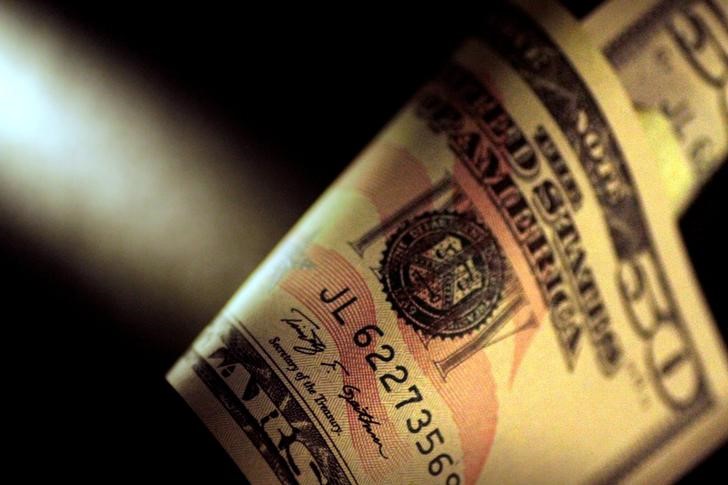Investing.com – The U.S. dollar rose in early European trade Tuesday, rebounding from recent lows, while the Australian dollar slumped after the RBA hinted at the end of its cycle of rate hikes..
At 03:25 ET (08:25 GMT), the Dollar Index, which tracks the greenback against a basket of six other currencies, climbed 0.2% to 105.285, above the near two-month low of 104.84 seen on Monday.
Dollar climbs on hawkish Fed speak
The slumped 1.3% last week, its steepest decline since mid-July, after the Federal Reserve offered up dovish signals on the likelihood for more interest rate hikes this year.
However, this tone has changed after Federal Reserve Bank of Minneapolis President hinted at the need for more interest rate increases to control inflation.
“The economy has proved to be really resilient even though we’ve raised interest rates a lot over the past couple of years. That’s good news,” Kashkari said in an interview on Monday.
But he added: “We haven’t completely solved the inflation problem. We still have more work ahead of us to get it done.”
The Fed kept its overnight short-term interest rate target unchanged at between 5.25% and 5.5% last week.
Fed Chairman is due to speak on Wednesday and Thursday, and traders will be looking to see if he backs up this more hawkish stance.
Euro falls after weak German industrial output
fell 0.1% to 1.0701, after fell more than expected in September, slumping 1.4% compared with the previous month.
This adds to the mounting signs that the eurozone’s largest economy is in difficulty, and is likely to end the year in a technical recession.
The European Central Bank must remain vigilant on inflation and be prepared to raise interest rates again if needed, its policymaker Robert Holzmann said on Monday, after the central bank halted its tightening cycle in late October.
However, Holzmann, the governor of Austria’s central bank, is on the hawkish end of the spectrum as far as ECB policymakers are concerned, and the majority of his colleagues may not hold these views given the region’s slowing growth.
dropped 0.2% to 1.2321, having hit a seven-week high of 1.2428 on Monday.
British grocery inflation has fallen below 10% for the first time since July 2022, according to data from market researcher Kantar, providing some relief for consumers as they enter the key Christmas shopping period.
Aussie dollar slumps after RBA meeting
fell 0.9% to 0.6429 after the hiked interest rates to their highest level in 12 years as widely expected, but altered its language regarding the outlook, watering down its forward guidance.
Traders perceived this change as dovish and started betting that the central bank was done with its rate hike cycle, putting the Aussie dollar on course to clock its biggest one-day percentage decline in a month.
Chinese exports disappointed in October
rose 0.2% to 7.2847, as data showed that China’s shrank more than expected in October, while the country’s narrowed to its weakest level in 17 months.
While unexpectedly rose, weakness in exports signaled worsening demand in the country’s biggest export destinations in the West.
rose 0.3% to 150.45, once again weakening past the key 150 level on the back of the dollar strength.
Read the full article here
